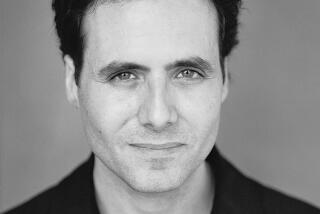Communism, Capitalism Are Gone? Tell That to the Little Green Men
The K. C. Cole-moderated panel discussion (âScience vs. Science Fiction,â Aug. 3) on the facility many of us have to blur the boundary between science and superstition is an intellectual windfall, especially in light of the misapprehensions of panelists Carol Tavris (the social psychologist) and Frank Spotnitz (âThe X-Filesâ writer).
Asserting a mass defection from traditional religious and political beliefs, Tavris holds that the âbig explanatory systems are gone. Communism is gone. Capitalism is gone.â Talk about science fiction--in what bizarrely attenuated realm does Tavris live? The populations of China, North Korea and Cuba--more than a billion people--live under this so-called dead ideol- ogy of communism, and the rest of the world continues to grapple with the meaning and desirability of capitalism. The ideological battle between capitalism/individualism and socialism/col- lectivism remains the worldâs most central and most furious.
All this talk about the end of ideology is more bunkum than any talk about psychic powers and little green men.
Spotnitz claims that people have become hostile to science and turned away from it because âreason and science donât really solve the problem of human natureâ and could not avert the carnage of the 20th century. Human nature is not a âproblemâ--it simply exists. The problem is that what reason and science have discovered about human nature has never been applied to the understanding of society and the building of civilization--while emotion, coercion and force have.
Nicholas E. Spinner
*
Physicist Otto French rebuts Carol Tavrisâ comment, âYou canât be angry with science for the bomb,â with his observation from Los Alamos on the day of Hiroshimaâs obliteration: âSomeone opened my door and shouted, âHiroshima has been destroyed!â; about 100,000 people were thought to have been killed. I still remember the feeling of unease, indeed nausea, when I saw how many of my friends were rushing to the telephone to book tables at the La Fonda Hotel in Santa Fe in order to celebrate. Of course, they were exalted by the success of their work, but it seemed rather ghoulish to celebrate the sudden death of 100,000 people, even if they were âenemies.â â
Science is scientists. And scientists, Iâm afraid, are all too human.
William Hohri
Lomita
I do not believe that people have abandoned âlistening to the lessons of the natural world.â Unfortunately, the lessons learned by thousands from the natural world are among the variety condemned by the gatekeepers of science: clairvoyance, ESP, ghost-sighting, out-of-body experiences, and contacts with alien intelligence.
A true empiricist could never throw these âmerelyâ anecdotal reports, numbering in the hundreds of thousands for the 20th century alone, into huge dustbins of denial. Your âWeird Scienceâ discussion was awash in timidity.
Where were the true empiricists?
Peter Stenshoel
Los Angeles
Cole presents the science writerâs view of the subject, particularly in its interaction with a so-called cabdriverâs perception of science. Scholars more generally call that bar talk. Unfortunately, the science writer is comparably guilty of a bar-talk understanding of science. Having attempted to clarify science issues in the large media, including both popular and scholarly sources, science scholars have 50 years of documentation and experience with the problem.
At beginning levels, it looks easy. But as the problems deepen and become more interdisciplinary, it changes. Having studied graduate physics with George Gamow at George Washington University, I am intimately aware of the difficulty he had getting the so-called big-bang model of cosmology considered in the mid-1900s.
I am one of a group of scholars from the University of California, USC and other institutions. We seek not notoriety; nor are we necessarily correct. But finding the truth requires many attempts. We, too, need to be heard when we have things of merit to say.
A. S. Iberall
Laguna Hills
More to Read
Sign up for our Book Club newsletter
Get the latest news, events and more from the Los Angeles Times Book Club, and help us get L.A. reading and talking.
You may occasionally receive promotional content from the Los Angeles Times.







